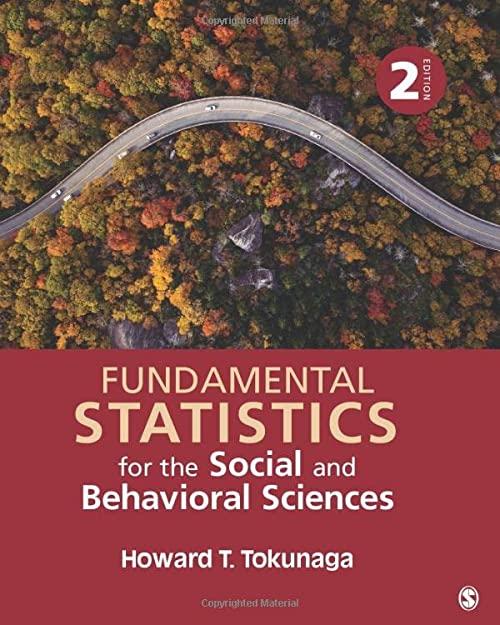Do people arrested for driving while intoxicated (DWI) believe they're problem drinkers? Researchers in one study asked
Question:
Do people arrested for driving while intoxicated (DWI) believe they're problem drinkers? Researchers in one study asked 199 people arrested for DWI, "Have you ever thought you might have a drinking problem?" (Adams \& Dennis, 2011). Nineteen of the offenders ( \(9.5 \%\) ) answered "yes" and 180 ( \(91.5 \%\) ) answered "no." To test the hypothesis that people arrested for DWI do not believe they have a drinking problem, conduct a goodness-of-fit test using hypothesized proportions of \(71.8 \%\) "yes" and \(28.2 \%\) "no," which are based on an expert's opinion as to the percentage of offenders in DWI programs who do in fact have drinking problems.
a. State the null and alternative hypotheses \(\left(\mathrm{H}_{0}\right.\) and \(\left.\mathrm{H}_{1}\right)\).
b. Make a decision about the null hypothesis.
(1) Calculate the degrees of freedom \((d f)\).
(2) Set alpha \((\alpha)\), identify the critical value, and state a decision rule.
(3) Calculate a statistic: chi-square \(\left(\chi^{2}\right)\).
(4) Make a decision whether to reject the null hypothesis.
(5) Determine the level of significance.
(6) Calculate a measure of effect size (Cramér's \(\phi\) ).
c. Draw a conclusion from the analysis.
d. Relate the result of the analysis to the research hypothesis.
Step by Step Answer:

Fundamental Statistics For The Social And Behavioral Sciences
ISBN: 9781506377476
2nd Edition
Authors: Howard T Tokunaga




